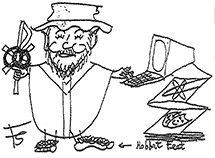On the weekend of May 27-29, 2011, I enjoyed celebrating years of graduation (in my case, 65) with many college friends, and among them I met Thomas Cotton.
On Sat, Jun 4, 2011 at 6:08 AM, Thomas Cotton wrote:
Graham: as a student of history and quite superficially Christian history I have a question which is perplexing me. The Council of Nicaea in C. 325 decided that Christ was divine, rather than human* based upon reference to the Gospel according to John. But the Bishop Arius argued based upon John 14:28 that “the Father is greater than I”. Both sides made reference to this Gospel, which is inconsistent. Now it may have been expedient for Constantine to use this council to resolve an issue which was then disrupting the Church, but how do modern day theologians justify a decision which appears to have been made on such a potentially contradictory source? John was only a fisherman and it is doubtful whether he took notes while Jesus was preaching.
Tom
*GC: Pause a moment: I thought the Council decided that Christ was equally divine and human.
A brief answer:
Almost all the sources of Scripture are contradictory. And many responses to Scripture and to life are also contradictory. What is significant is what we choose, and choose again, and modify, and live by, generation after generation.
The decisions were made by individuals, clergy and even councils of the church based on what their experience of Christian living and worship and mutual exchange helped them to see the kind of God they were dealing with. They were also moved by their sense of who Jesus was, what he did, and what he said - in that order.
And when it same to questions of the relation of Jesus to God, they were firmly monotheist, but they believed the overwhelming evidence was that the only God they knew was one who came among them in the person of Jesus. The Arians were people who thought that such a one who is God could not completely come among human beings as a human being. Put another way, they did not trust God to be fully given over to human life and death.
As for the Gospel of John, much of it is the considered understanding of a mystical following in the Church, who associated themselves with either the Apostle John (through memory and tradition, that is “passing experience along”) or another mystic named John. This man was poet enough to provide a recapitulation of stories and memories of Jesus. Whoever created the present text, repeatedly had Jesus say “I am he”, so having him claim to be the same as the one who through the burning bush said to Moses “I am He.”
Both the Gospel of John and the Council of Nicaea are regarded as having been inspired by the Holy Spirit. So also are further generations down to ourselves, whose acceptance or modification of these teachings can be within a strong sense of our experience of the faithfulness of God, coming into into our own lives as a kind of lure or nudge towards the opening up ourselves to further human destiny.
An overview of what I believe about God would include something like this:
As Creator I believe God is so poured into the existence and constant origination of the universe, that God is hidden within it, and only known through all the wonders of science that have been and will be disclosed to us or discovered by us. Our evolution from the organic to the conscious is God’s method of bringing about innovation iin a beloved universe.
This innovation continues in what we have labelled “redemption”, God coming among as a human person to restore our wholeness of being. God remains among us to help us tune ourselves into a fullness as individual conscious beings. Such is also and necessarily a fullness and completeness of all humanity, and all our context in nature. Thus we are moved also into innovations of reality beyond our present understanding.
Human innovators, politicians, scientists, and artists are often confronted by people who do not understand the new and cling to the old. Innoivators are accused of novelty, heresy, and so forth, as the majority cling to their old ways of acting and thinking.
In the story of salvation in the Bible, there is always a status quo in the minds of the general public. A public who have fastened on natural phenomena, storms, whirlwinds earthquakes, changes in the stars, from an early stage regard these as showing divine force, wrath, or the divine will. Jesus comes along, teaching love from God and among human beings, giving himself up to passion and death: on top of this his followers report his reappearance after death, then there are nay-sayers who will call it all a fake. And his followers, already convinced of his relation to his heavenly Father, fix on his power and his rising from the dead as supernatural. Again the supernatural is a recourse to those who want to believe in a greater power, and who see as supernatural works which may very well extensions of the natural world beyond the limits we recognize as natural.
Put from a believer’s point of view, if we believe that a loving God has created the wonderful world revealed to us by science, would it not be true that a life in resurrection, or an after-life, what the creed calls the “life of the world to come” would be equally natural from the point of view of that faithful loving God?
In summary I believe in a God who continually originates the universe, reveals innovbations by natural means, and invites us to a completion of our being beyond our present knowledge. Our clue, and our cue, for the new life is to choose love in this one.

